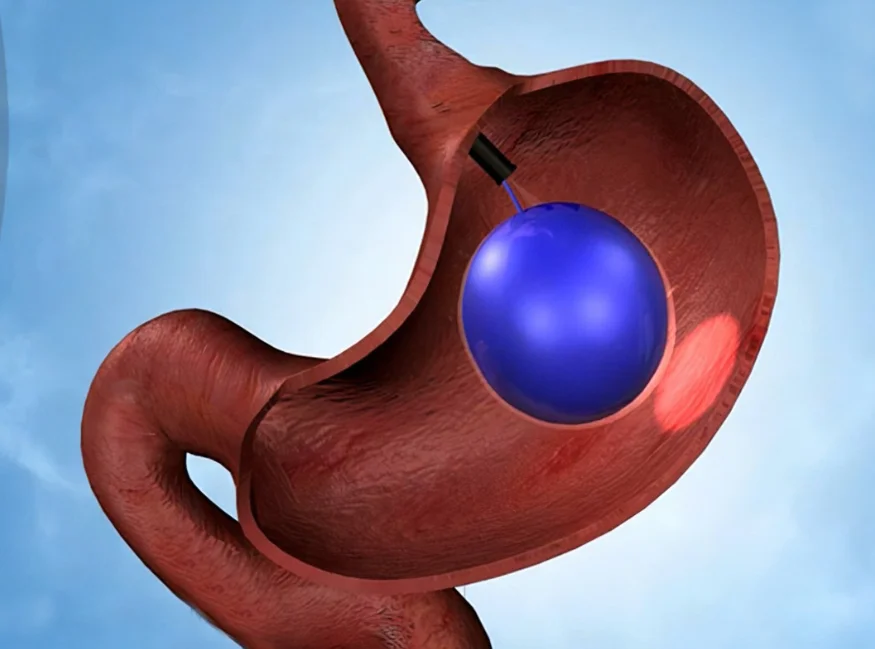Telmisartan (Micardis) is an angiotensin II receptor blocker that is primarily used as an antihypertensive medicine. It is used to treat the following conditions:
-
Cardiovascular risk reduction:
-
It is used to lower cardiovascular risk in those over 55 who are at high risk of developing serious cardiovascular events (such MI, stroke, or death) but cannot take ACE inhibitors..
-
-
Hypertension:
-
It is used for the management of hypertension
-
-
Label Use of Telmisartan in Adults:
-
Coronary syndrome, acute (secondary prevention of cardiovascular events)
-
Stable coronary artery disease
-
Telmisartan (Micardis) dose in Adults
Telmisartan (Micardis) dose in the treatment of Hypertension:
- Initial:
- 20 to 40 mg administered once daily orally
- Depending on the patient's response, the dose should be adjusted as necessary, up to 80 mg once daily.
Telmisartan (Micardis) dose in the treatment of Cardiovascular risk reduction:
- 80 mg orally once daily given
Telmisartan (Micardis) dose in Children
Not recommended for use in children.
Telmisartan (Micardis) pregnancy Risk Factor: D
- Ramipril, an ACE inhibitor, is similar to captopril in its pharmacologic properties and blocks the production of angiotensin II from angiotensin I.
- Ramipril undergoes enzymatic saponification by esterases in the liver to produce ramiprilat, which is ramipril's physiologically active metabolite.
- The competitive, high-affinity, and reversible binding of ramiprilat to the angiotensin-converting enzyme causes ramipril to have pharmacological effects by inhibiting the production of the potent vasoconstrictor angiotensin II.
- This isomerized enzyme inhibitor complex has a slow dissociation rate.
- Warning: US Boxed Medications that interfere with the renin-angiotensin systems can harm or kill a developing foetus.
- Once you are aware that you are pregnant, stop immediately.
- Drugs that affect the Renin-angiotensin System can cause the condition oligohydramnios.
- Fetal kidney failure and skeletal abnormalities can result from oligohydramnios.
- Hypotension, anuria, and renal failure are all linked to it.
- Look for indications of foetal growth, amniotic fluid volume, and potential organ creation in the exposed foetus.
- Children exposed to hyperkalemia, hypotension, and oliguria while they were developing should be assessed (exchange transfusions, dialysis may be necessary).
- The use by mothers throughout the second and third trimesters is frequently linked to these negative side effects.
- If left untreated, chronic maternal hypertension can have negative effects on the pregnancy, mother, and baby.
- Angiotensin II receptor blocking agents should not be used to treat uncomplicated hypertension. They should be avoided by women with reproductive potential.
Telmisartan (Micardis) use during breastfeeding:
- It is unknown if telmisartan can be found in breast milk.
- Consider the possibility of serious side effects for breastfeeding infants.
- It is important to weigh the risks and benefits of drug exposure to the child as well as the benefits to the mother.
- High potency, sustained effect, and high potency are the outcomes.
- Angiotensin II, which boosts the CNS's adrenergic output, also lowers blood pressure via a CNS mechanism.
- ACE inhibitors may decrease the conversion of vasoactive kallikreins to active hormones, lowering blood pressure.
Dose for kidney disease:
- No change in dose is necessary
- Orthostatic hypotension is more likely to occur in hemodialysis patients.
Dose for liver disease:
- Start your therapy with a low dose, titrate cautiously, and keep an eye on things.
Side Effects of Telmisartan (Micardis) Include:
-
Cardiovascular:
- Intermittent Claudication
- Chest Pain
- Hypertension
- Peripheral Edema
-
Central Nervous System:
- Dizziness
- Fatigue
- Headache
- Pain
-
Dermatologic:
- Dermal Ulcer
-
Gastrointestinal:
- Diarrhea
- Abdominal Pain
- Dyspepsia
- Nausea
-
Genitourinary:
- Urinary Tract Infection
-
Neuromuscular & Skeletal:
- Back Pain
- Myalgia
-
Respiratory:
- Upper Respiratory Tract Infection
- Sinusitis
- Cough
- Flu-Like Symptoms
- Pharyngitis
Contraindication to Telmisartan (Micardis) Include:
- Hypersensitivity to telmisartan, or any component of it, is a known condition
- Patients with diabetes can concurrently take aliskiren
- pregnancy
- Breastfeeding
- fructose intolerance
Warnings and precautions
- Angioedema
- Some angiotensin II receptor inhibitors can cause the rare adverse effect of angioedema (ARBs). Anytime during therapy, but especially after the first dose, it can happen.
- Additionally, it might affect the head and neck, possibly impairing the airway, or the gut, resulting in discomfort in the abdomen.
- Patients who have previously had idiopathic or genetic angioedema or angioedema linked to ACE-inhibitor medication are more vulnerable.
- Patients with larynx, tongue, or glottis edema may need to be monitored frequently and for a prolonged period of time.
- Patients who have had previous airway surgery may be at greater risk for obstruction.
- If angioedema develops, stop treatment immediately.
- It is crucial to be aggressive in early management.
- Intramuscular (IM) administration of epinephrine is necessary.
- Patients who have angioedema caused by ARBs should not be given.
- Hyperkalemia:
- It is possible for this to happen. Risk factors include kidney dysfunction, potassium supplements and diabetes mellitus.
- These agents should be used with caution and potassium should be monitored closely.
- Hypotension
- Patients who have been treated with high-dose diuretics or salt-depleted can develop symptoms of hypotension.
- correct volume depletion before administration.
- It is not contraindicated to use transient hypotension.
- Renal function deterioration:
- Telmisartan can cause a decrease in renal function in patients who are low in renal blood flow, such as those with heart failure or renal artery stenosis.
- High-risk patients are at high risk of developing azotemia. This is because their glomerular filter rate (GFR), primarily depends on the efferent arterial vasoconstriction, which is mediated through angiotensin 2.
- Oliguria, severe renal failure, or progressive azotemia can result from deterioration.
- Small increases in serum creatinine may happen after starting.
- Patients with progressive and severe impairment of renal function must stop taking the medication.
- Aortic/mitral stenosis:
- Patients with severe aortic/mitralstenosis should be cautious.
- Ascites:
- Avoid patients with ascites caused by cirrhosis, refractory ascites, or other reasons.
- If patients with cirrhosis or ascites are unable to refrain from taking the medication, it is crucial to regularly monitor blood pressure and kidney function to stop the rapid onset of renal failure.
- Hepatic impairment
- Patients with biliary obstruction disorders or hepatic dysfunction should be cautious.
- Renal artery stenosis
- Patients who have unilateral or bilateral renal artery stenosis that is untreated should exercise caution.
- Due to the increased risk of renal impairment, this should not be done in cases of bilateral unstented renal artery stenosis.
- Renal impairment
- Pre-existing renal impairment or severe renal insufficiency should be avoided.
Telmisartan: Drug Interaction
|
Alfuzosin |
The hypotensive effects of blood pressure-lowering medications may be strengthened. |
|
Amphetamines |
May lessen the effectiveness of antihypertensive agents. |
|
Angiotensin II |
The therapeutic benefit of angiotensin II may be reduced by receptor blockers. |
|
Antipsychotic Agents (Second Generation [Atypical]) |
Antipsychotic drugs' hypotensive effects may be enhanced by blood pressure-lowering medications (Second Generation [Atypical]). |
|
Barbiturates |
The hypotensive effects of blood pressure-lowering medications may be strengthened. |
|
Benperidol |
The hypotensive effects of blood pressure-lowering medications may be strengthened. |
|
Brigatinib |
May lessen the effectiveness of antihypertensive agents. Antihypertensive Agents' bradycardic action may be strengthened by brutinib. |
|
Brimonidine (Topical) |
The hypotensive effects of blood pressure-lowering medications may be strengthened. |
|
Cardiac Glycosides |
Cardiac Glycosides' serum levels may rise in response to telmisartan. |
|
CycloSPORINE (Systemic) |
CycloSPORINE's hyperkalemic impact may be enhanced by angiotensin II receptor blockers (Systemic). |
|
Dapoxetine |
Angiotensin II Receptor Blockers' orthostatic hypotensive action might be improved. |
|
Dexmethylphenidate |
May lessen the effectiveness of antihypertensive agents. |
|
Diazoxide |
The hypotensive effects of blood pressure-lowering medications may be strengthened. |
|
Drospirenone |
Drospirenone's hyperkalemic impact may be enhanced by angiotensin II receptor blockers. |
|
DULoxetine |
The hypotensive impact of DULoxetine may be enhanced by blood pressure lowering medications. |
|
Eplerenone |
Angiotensin II Receptor Blockers' hyperkalemic impact might be strengthened. |
|
Heparin |
Angiotensin II Receptor Blockers' hyperkalemic impact might be strengthened. |
|
Heparins (Low Molecular Weight) |
Angiotensin II Receptor Blockers' hyperkalemic impact might be strengthened. |
|
Herbs (Hypertensive Properties) |
May lessen the effectiveness of antihypertensive agents. |
|
Herbs (Hypotensive Properties) |
The hypotensive effects of blood pressure-lowering medications may be strengthened. |
|
Hypotension-Associated Agents |
The hypotensive action of hypotension-associated agents may be strengthened by blood pressure lowering medications. |
|
Levodopa-Containing Products |
Levodopa-Containing Products' hypotensive effects may be strengthened by blood pressure-lowering medications. |
|
Lormetazepam |
The hypotensive effects of blood pressure-lowering medications may be strengthened. |
|
Methylphenidate |
May lessen the effectiveness of antihypertensive agents. |
|
Molsidomine |
The hypotensive effects of blood pressure-lowering medications may be strengthened. |
|
Naftopidil |
The hypotensive effects of blood pressure-lowering medications may be strengthened. |
|
Nicergoline |
The hypotensive effects of blood pressure-lowering medications may be strengthened. |
|
Nicorandil |
Angiotensin II Receptor Blockers' hyperkalemic impact might be strengthened. |
|
Nicorandil |
The hypotensive effects of blood pressure-lowering medications may be strengthened. |
|
Nitroprusside |
Nitroprusside's hypotensive impact may be strengthened by blood pressure-lowering medications. |
|
Nonsteroidal Anti-Inflammatory Agents |
Nonsteroidal Anti-Inflammatory Agents' negative/toxic effects may be amplified by angiotensin II receptor blockers. In particular, the combination may cause a marked decline in renal function. Angiotensin II Receptor Blockers' therapeutic impact may be lessened by non-steroidal anti-inflammatory drugs. Both glomerular filtration rate and renal function may be considerably reduced by the combination of these two drugs. |
|
Pentoxifylline |
The hypotensive effects of blood pressure-lowering medications may be strengthened. |
|
Pholcodine |
Blood Pressure Lowering Agents may enhance the hypotensive effect of Pholcodine. |
|
Phosphodiesterase 5 Inhibitors |
The hypotensive effects of blood pressure-lowering medications may be strengthened. |
|
Potassium Salts |
Angiotensin II Receptor Blockers' hyperkalemic impact might be strengthened. |
|
Potassium-Sparing Diuretics |
Potassium-Sparing Diuretics may have a stronger hyperkalemic impact when used with Angiotensin II Receptor Blockers. |
|
Prostacyclin Analogues |
The hypotensive effects of blood pressure-lowering medications may be strengthened. |
|
Quinagolide |
The hypotensive effects of blood pressure-lowering medications may be strengthened. |
|
Ranolazine |
Angiotensin II Receptor Blockers' hyperkalemic impact might be strengthened. |
|
Tacrolimus (Systemic) |
Tacrolimus's hyperkalemic impact may be enhanced by angiotensin II receptor blockers (Systemic). |
|
Tolvaptan |
Angiotensin II Receptor Blockers' hyperkalemic impact might be strengthened. |
|
Trimethoprim |
Angiotensin II Receptor Blockers' hyperkalemic impact might be strengthened. |
|
Yohimbine |
May lessen the effectiveness of antihypertensive agents. |
|
Risk Factor D (Consider therapy modification) |
|
|
Aliskiren |
Angiotensin II Receptor Blockers' hyperkalemic impact might be strengthened. The hypotensive effects of angiotensin II receptor blockers may be strengthened by aliskiren. Angiotensin II Receptor Blockers' nephrotoxic effects may be made worse by aliskiren. Treatment: It is not advised for diabetic patients to take aliskiren along with ACEIs or ARBs. Combination therapy should be avoided in other patients, especially when CrCl is less than 60 mL/min. If combined, keep a close eye on your blood pressure, potassium, and creatinine levels. |
|
Amifostine |
Amifostine's hypotensive impact may be strengthened by blood pressure lowering medications. Treatment: Blood pressure-lowering drugs need to be avoided for 24 hours before amifostine is administered when used at chemotherapeutic doses. Amifostine should not be given if blood pressure lowering treatment cannot be stopped. |
|
Angiotensin-Converting Enzyme Inhibitors |
Angiotensin II Receptor Blockers may make angiotensin-converting enzyme inhibitors more harmful or toxic. Angiotensin-Converting Enzyme Inhibitors' serum levels may rise in response to angiotensin II receptor blockers. Management: According to US labelling, it is not advisable to take telmisartan and ramipril. It is unclear whether another ACE inhibitor and ARB combo would be any safer. When possible, take into account alternatives to the mix. |
|
Lithium |
It's possible that angiotensin II receptor blockers will raise the level of lithium in the blood. Management: After adding an angiotensin II receptor antagonist, it will probably be necessary to lower the dosage of lithium. |
|
Obinutuzumab |
The hypotensive effects of blood pressure-lowering medications may be strengthened. Management: Take into account temporarily stopping blood pressure-lowering drugs 12 hours before the start of the obinutuzumab infusion and keeping them off until 1 hour after the infusion is finished. |
|
Sodium Phosphates |
Angiotensin II Receptor Blockers may make sodium phosphates more nephrotoxic. In particular, there may be an increased risk of acute phosphate nephropathy. Treatment: You might want to temporarily stop taking ARBs or look into alternatives to the oral sodium phosphate bowel preparation in order to prevent this combo. Maintaining appropriate hydration and properly monitoring renal function should be done if the combination cannot be avoided. |
|
Risk Factor X (Avoid combination) |
|
|
Bromperidol |
The hypotensive impact of bromperidol may be enhanced by blood pressure lowering medications. Blood Pressure Lowering Agents' hypotensive effects may be lessened by bromperidol. |
|
Ramipril |
Telmisartan may intensify Ramipril's harmful or hazardous effects. Ramipril's serum levels may be raised by telmisartan. Ramiprilat, the active metabolite, may also have higher concentrations. |
Monitor:
- Blood pressure
- electrolytes
- serum creatinine
- BUN
How to administer Telmisartan (Micardis)?
- It may be administered orally without regard to meals.
Mechanism of action of Telmisartan (Micardis):
- Angiotensin II acts as a vasoconstrictor.
- Vasoconstriction is another effect of it. Aldosterone is released when angiotensin II is stimulated.
- Sodium and water are released by aldosterone, which causes reabsorption.
- The result is a rise in blood pressure.
- Another name for Telmisartan is Telmisartan, which is a nonpeptide AT1 receptor antagonist.
- This binding prevents angiotensin I from attaching to the receptor, blocking both the effects of angiotensin 2 on vasoconstriction and the release of aldosterone.
Onset of action:
- 1 to 2 hours
Duration:
- Up to 24 hours
Distribution: V :
- 500 L
Protein binding:
- >99.5%; primarily to albumin and alpha -acid glycoprotein
Metabolism:
- It is not processed by CYP, but rather by the liver through conjugation to inactive metabolites.
Bioavailability (dose-dependent):
- 42% to 58%
- Hepatic impairment: Approaches 100%
Half-life elimination: Terminal:
- 24 hours
Time to peak, plasma:
- 0.5 to 1 hours
Excretion:
- Via Feces (97%)
Clearance: Total body: 800 mL/minute
International Brands of Telmisartan:
- ACT Telmisartan
- APO-Telmisartan
- Auro-Telmisartan
- Micardis
- MYLAN-Telmisartan
- PMS-Telmisartan
- RAN-Telmisartan
- SANDOZ Telmisartan
- TEVA-Telmisartan
- VAN-Telmisartan
- Actelsar
- Agimstan
- Alimax
- Biocardis
- Cardiz
- Chartoreg
- Cilzec
- Floxetin
- Kinzalmono
- Lemitens
- Mibetel
- Micardis
- Mitosan
- Mizart
- Osan
- Predxal
- Pritor
- Pritoral
- RAAS
- Safetelmi
- Saitan
- T-Sar
- Tazloc
- Telday
- Teli 40
- Teli 80
- Telma-20
- Telmed
- Telmican
- Telmicard
- Telmimax
- Telmirama
- Telmisar
- Telmitrend
- Telmotens
- Telsan
- Telsar
- Telstan
- Teltartan
- Teltas
- TESAA
- TEZEO
- Tolura
Telmisartan (Micardis) Brands in Pakistan:
Telmisartan [Tabs 20 Mg] |
|
| Cresar | Tabros Pharma |
| De-Nile | Pharma Health Pakistan (Pvt) Ltd |
| Mesartin | Shrooq Pharmaceuticals |
| Misar | Highnoon Laboratories Ltd. |
| Misartan | Indus Pharma (Pvt) Ltd. |
| Normisar | Nabiqasim Industries (Pvt) Ltd. |
| Pressurex | Pfizer Laboratories Ltd. |
| T Sartan | Maple Pharmaceuticals (Pvt) Ltd |
| Tasmi | Getz Pharma Pakistan (Pvt) Ltd. |
| Telsan | Hilton Pharma (Pvt) Limited |
| Telsarta | Pharmevo (Pvt) Ltd. |
| Telsitan | Macter International (Pvt) Ltd. |
Telmisartan [Tabs 40 Mg] |
|
| Cresar | Tabros Pharma |
| De-Nile | Pharma Health Pakistan (Pvt) Ltd |
| Ezitab | Werrick Pharmaceuticals |
| Mesartin | Shrooq Pharmaceuticals |
| Mictel | Bosch Pharmaceuticals (Pvt) Ltd. |
| Misar | Highnoon Laboratories Ltd. |
| Misartan | Indus Pharma (Pvt) Ltd. |
| Normisar | Nabiqasim Industries (Pvt) Ltd. |
| Pressurex | Pfizer Laboratories Ltd. |
| T Sartan | Maple Pharmaceuticals (Pvt) Ltd |
| Tasmi | Getz Pharma Pakistan (Pvt) Ltd. |
| Telsan | Hilton Pharma (Pvt) Limited |
| Telsarta | Pharmevo (Pvt) Ltd. |
| Telsitan | Macter International (Pvt) Ltd. |
Telmisartan [Tabs 50 Mg] |
|
| Ezitab | Werrick Pharmaceuticals |
Telmisartan [Tabs 80 Mg] |
|
| Cresar | Tabros Pharma |
| De-Nile | Pharma Health Pakistan (Pvt) Ltd |
| Mesartin | Shrooq Pharmaceuticals |
| Mictel | Bosch Pharmaceuticals (Pvt) Ltd. |
| Misar | Highnoon Laboratories Ltd. |
| Normisar | Nabiqasim Industries (Pvt) Ltd. |
| T Sartan | Maple Pharmaceuticals (Pvt) Ltd |
| Tasmi | Getz Pharma Pakistan (Pvt) Ltd. |
| Telsan | Hilton Pharma (Pvt) Limited |
| Telsarta | Pharmevo (Pvt) Ltd. |
| Telsitan | Macter International (Pvt) Ltd. |




